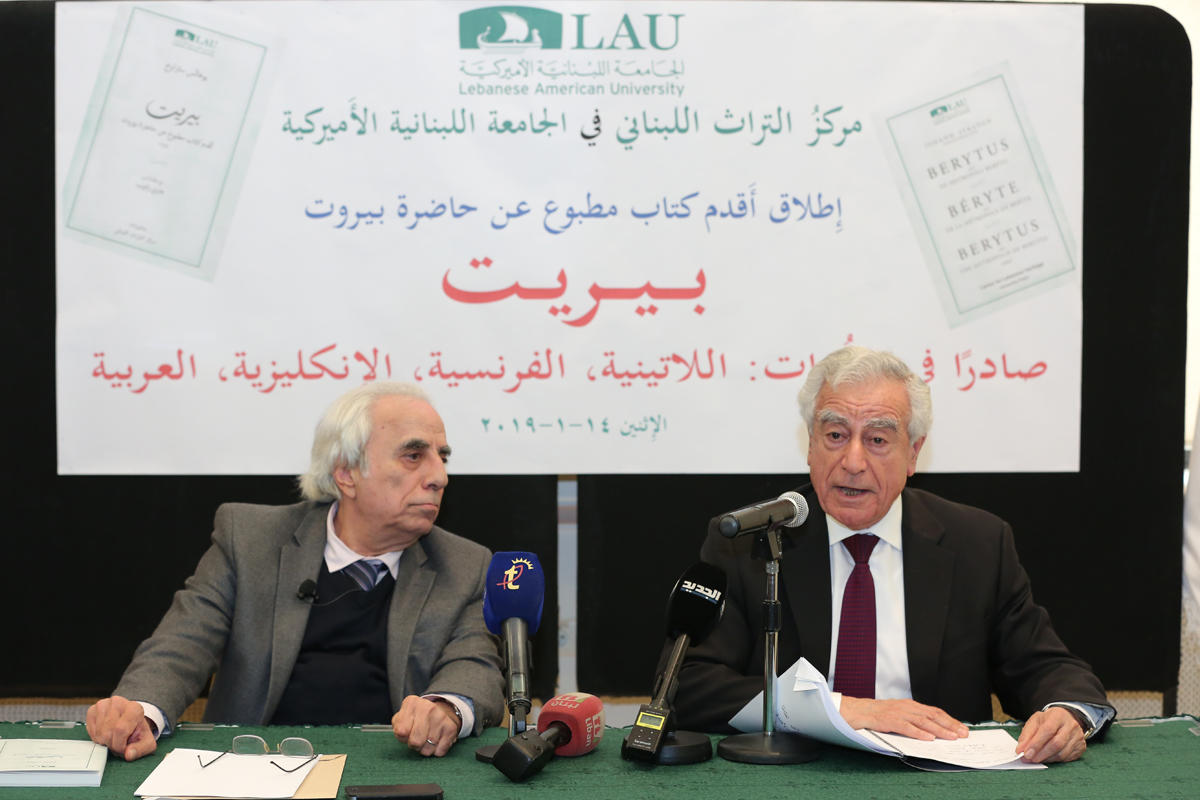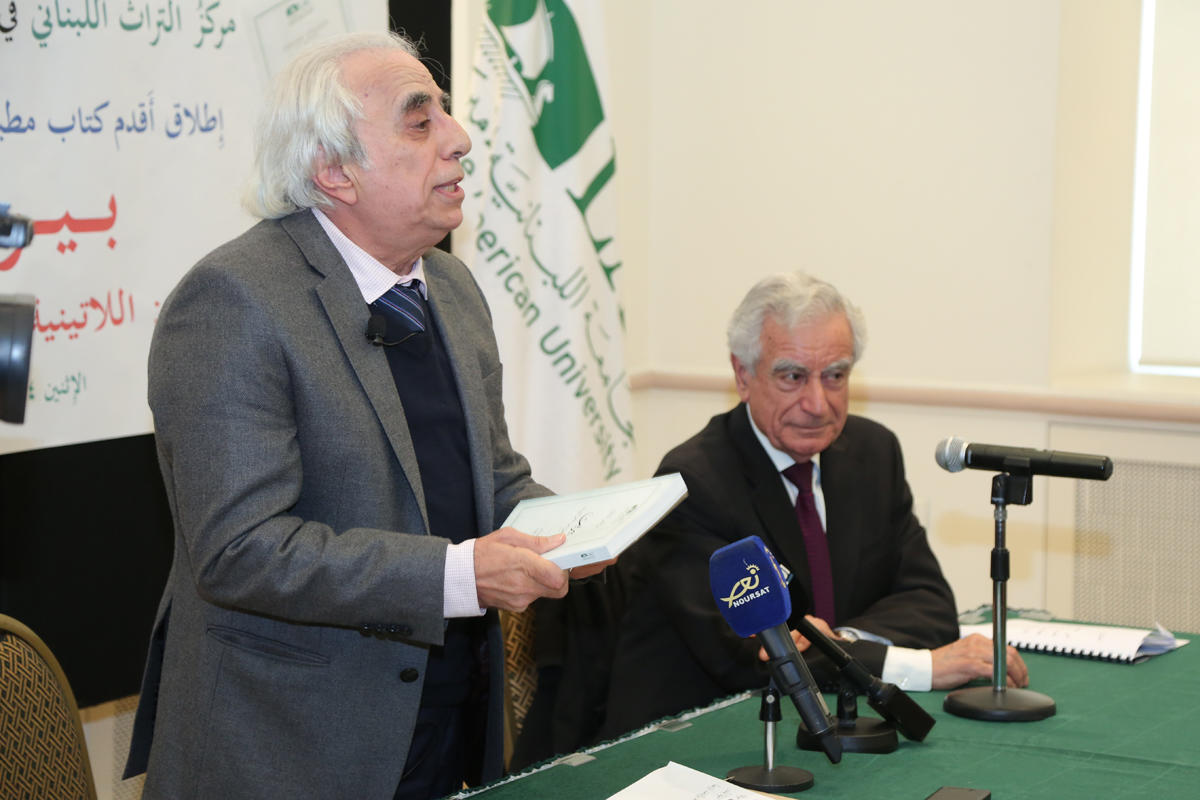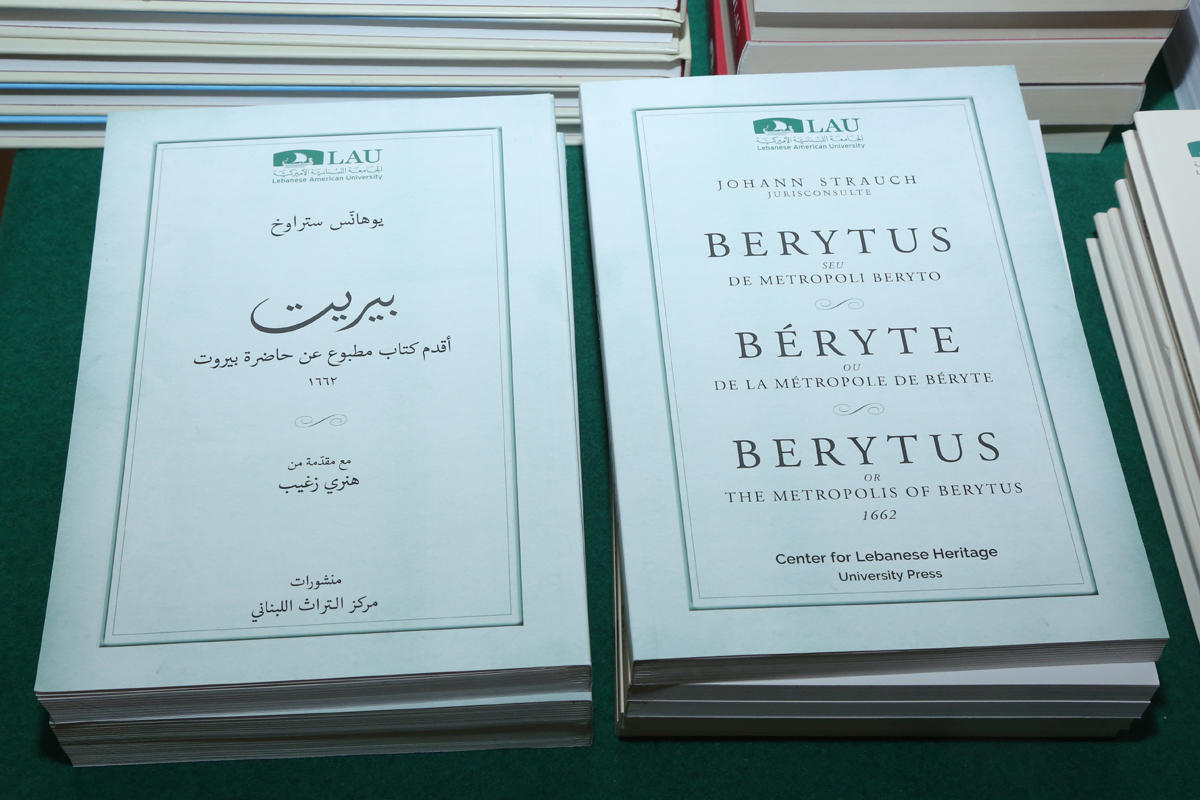Berytus, Mother of Laws
The Center for Lebanese Heritage re-launches a translation of the oldest book about Beirut and its school of law.
Forever mining Lebanon’s rich history, the Center for Lebanese Heritage (CLH) at LAU, under the direction of Henri Zoghaib, this week launched a translation in three languages of the very first book to be printed about Beirut.
Berytus or the Metropolis of Berytus – published in Latin as early as 1662 by the German jurist Johann Strauch – has now been released by CLH in French, English and Arabic, along with a facsimile of the original, as one single volume. Previously, Attorney-at-Law Joy Tabet and USEK Professor of Latin Mireille Issa published a French translation with Dar An-Nahar in 2009 on the occasion of Beirut’s nomination as the World Book Capital.
Berytus sheds light on the city as a commercial center and a Roman colony, focusing on the origins and function of the “very noble School of Law” – one of the oldest Phoenician academies. Established in the third century AD, the school served as a repository for imperial edicts and a reference on judicial procedure in the Eastern provinces of the Roman Empire. Under Emperor Justinian I, this great metropolis, according to Strauch, became a pioneer in constitutions and legislation, earning the title Berytus Nutrix Legum (Beirut, Mother of Laws).
The school was destroyed in the aftermath of an earthquake in 551 AD, and students were relocated to Sidon until Beirut was rebuilt. But no sooner was it reconstructed than a fire razed it to the ground. “This has been Beirut since the dawn of history,” said Zoghaib, “perpetually confronted with wars and catastrophes from which it rose at every turn.”
This priceless record of the city, the Justinian code and the school represents, in the words of LAU President Joseph G. Jabbra, a work of “great symbolic, sentimental, and historical value.”
At the launching ceremony – attended by Tabet, Dr. Issa, and representative of the Beirut Bar Association Amal Haddad, among others – Dr. Jabbra expressed the pride LAU holds in celebrating “the city that enriched the Mediterranean basin with intellect, promoting it as a bridge to knowledge among human beings.”
Providing the background to the book, Zoghaib described how he had come across the 2009 edition at Tabet’s home eight years after it was published and committed to translating it into English and Arabic. Tabet, he said, “gave me a written authorization to reissue the French and Latin texts in the edition by the Center for Lebanese Heritage, along with two new translations.”
The Arabic was entrusted to an expert translation committee formed by the CLH, and the English version to LAU translation graduate Hoda Hilal.
“And, so today,” concluded Zoghaib, “the book is released in four languages, bearing a precious treasure of our cherished city. Through its pages, our capital shines upon the world like a star, not as an area of land with borders, but an infinite oasis of civilization.”
Praising Zoghaib’s dedication and accomplishment, Dr. Jabbra said that he “had dusted off nearly three and a half centuries and republished this intellectual gem in four languages … so that everyone can learn about this long-standing law school in the great metropolis, Beirut.”
Complimentary copies of the book were offered at the event. Berytus will be distributed to university libraries and research centers in Lebanon and worldwide. To access the pdf version, click here.


